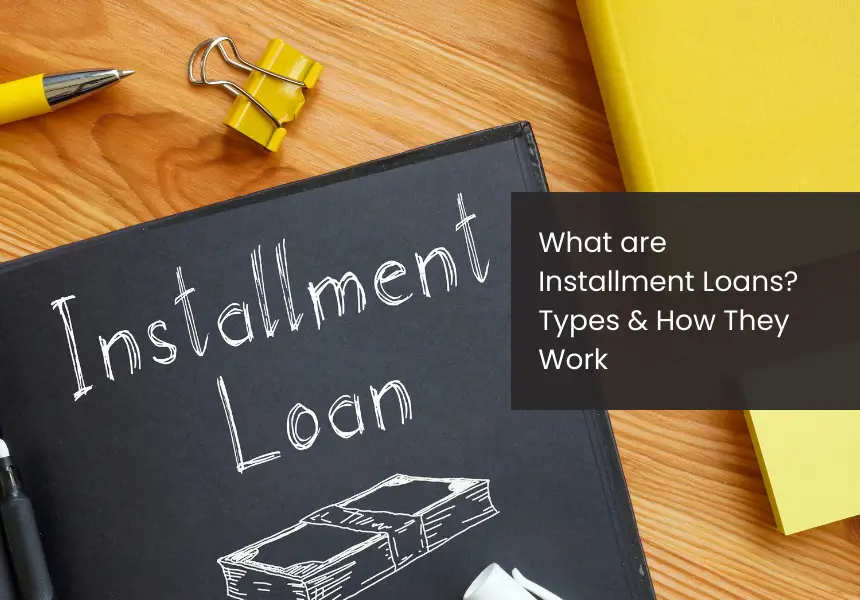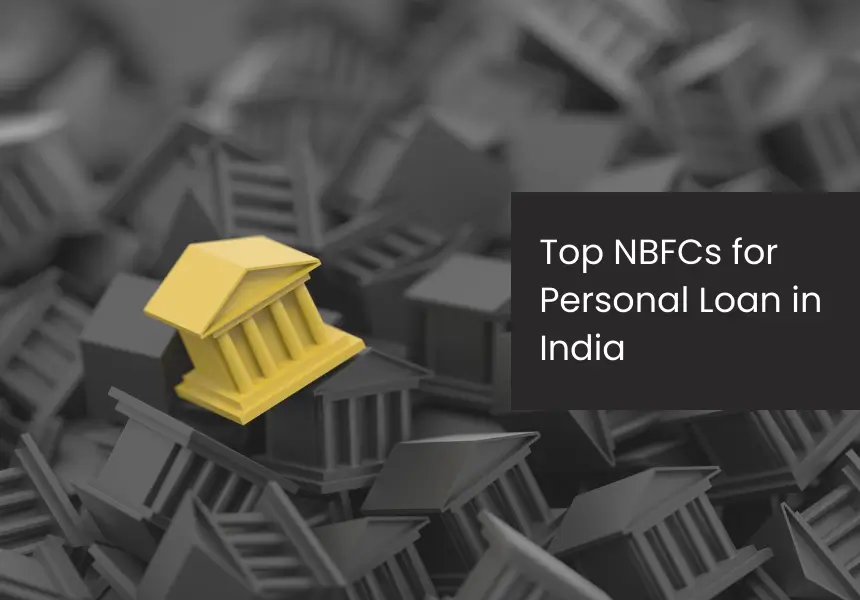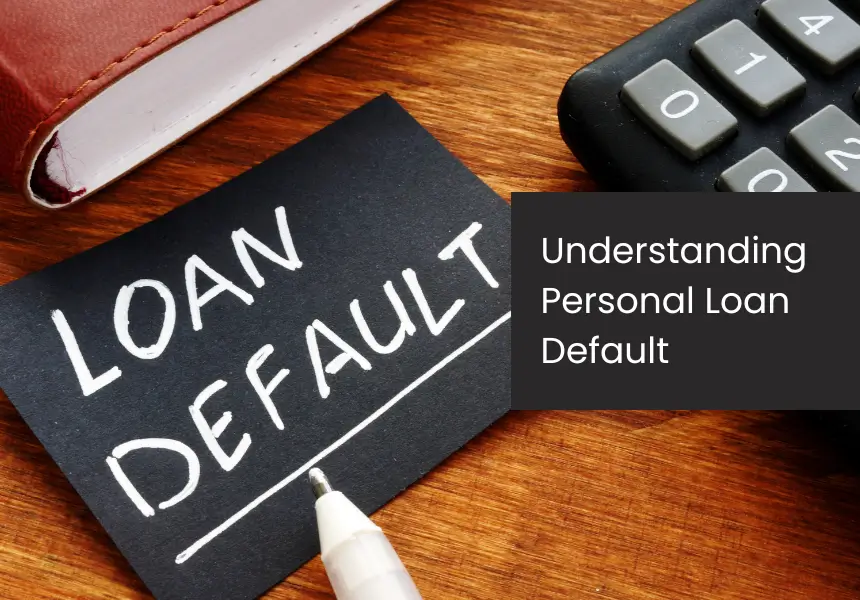Published on : June 12, 2024
Imagine you need to cover an unexpected expense—perhaps a car repair or a medical bill. Should you use a personal loan or a credit card?
Both credit cards and personal loans offer a way to access funds quickly, but they’re not one-size-fits-all solutions. Let’s look at the difference between personal loans and credit cards to help you make the best financial decision for your situation.
What is a Credit Card?
Think of a credit card as a handy loan in your pocket. Issued by banks or financial institutions, it lets you borrow money up to a set limit for purchases or even cash advances. Unlike a debit card that directly deducts money from your bank account, a credit card gives you a line of credit.
When you use a credit card to make a purchase, the credit card company pays the merchant on your behalf. This amount is then added to your outstanding balance. At the end of the billing cycle, you will receive a statement listing all your transactions, the total balance, the minimum payment due, and the due date. You can choose to pay the full balance, the minimum payment, or any amount in between. Paying the full balance by the due date can help you avoid interest charges.
Credit cards can be a convenient way to manage cash flow, build credit history, and earn rewards. However, they require disciplined use to avoid accumulating high-interest debt. Mismanagement of credit cards can lead to financial difficulties, including damaged credit scores and substantial debt due to compounding interest.
What is a Personal Loan?
A personal loan is an unsecured loan provided by banks, credit unions, and online lenders. It allows individuals to borrow a lump sum of money that is repaid in fixed monthly installments over a set period. Unlike secured loans, such as mortgages or car loans, personal loans do not require collateral, which means they are backed solely by the borrower’s creditworthiness.
When you apply for a personal loan, the lender evaluates your creditworthiness by checking your credit score, income, employment history, and other financial information. If approved, you receive a lump sum of money, which you can use for various purposes, such as debt consolidation, home improvements, medical expenses, or other personal needs.
Once you receive the funds, you start repaying the loan in fixed monthly installments over the agreed-upon term. Each installment includes a portion of the principal (the amount borrowed) and interest. Because personal loans have fixed interest rates and repayment terms, you can be aware of your monthly payments beforehand.
What is the Difference Between a Credit Card and a Personal Loan?
Choosing between a credit card and a personal loan depends on your financial situation and needs. Here’s a breakdown to help you decide:
| Feature | Credit Card | Personal Loan |
| Type of Credit | Revolving credit | Installment loan |
| Usage | Ongoing access to credit for purchases, cash advances, and balance transfers | Lump sum borrowed for specific purposes, such as debt consolidation or large purchases |
| Repayment | Flexible monthly payments, minimum payment required | Fixed monthly payments over a set term |
| Interest Rate | Higher interest rates | Lower than credit card rates |
| Credit Limit | Predetermined limit, can be increased with good credit behavior | Lump sum amount based on creditworthiness and lender’s policies |
| Collateral | Unsecured, no collateral required | Unsecured (in most cases), no collateral required |
| Fees | Annual fees, late payment fees, cash advance fees, balance transfer fees | Processing fees, late payment fees, prepayment penalties (depending on lender’s policies) |
| Interest Accrual | Interest starts immediately on cash advances, and for purchases, it starts after a grace period if the balance is not paid in full | Fixed interest is calculated at the start and included in the monthly payments. |
| Benefits | Rewards programs, cash back, travel points, purchase protection | Lower interest rates, fixed payment schedule, predictable costs |
| Credit Score Impact | Can impact utilization rate, important for credit score | Timely payments positively affect the credit score |
| Application Process | Quick, often instant approval | May take longer, requires more documentation and a thorough credit check, but quicker with digital lenders |
| Best For | Regular, smaller purchases, and those who can pay off the balance monthly | Larger, one-time expenses or consolidating high-interest debt |
| Grace Period | Usually offers a grace period for new purchases | No grace period, interest starts accruing immediately |
Which is better – Credit Card or Personal Loan?
Choosing which is better, a credit card or a personal loan depends on your financial needs. Here is a concise comparison to help you decide:
Situations in which a credit card might be better:
- Ideal for regular expenses like groceries, gas, and dining out, with the flexibility of revolving credit.
- Offers flexibility with revolving credit, meaning you can borrow up to your credit limit repeatedly.
- Provides rewards like cashback, travel points, and other perks.
- Comes with higher interest rates if balances are not paid in full each month.
- Easier access and convenience for day-to-day purchases.
Situations when a personal loan might be better:
- Suitable for larger, one-time expenses such as home renovations, medical bills, or debt consolidation.
- Has lower interest rates compared to credit cards.
- Fixed repayment terms with set monthly payments, making budgeting easier.
- Provides a lump sum upfront with no revolving credit.
Considerations:
- Interest Rates: Credit cards usually have higher rates, while personal loans usually offer lower rates for good credit.
- Repayment Discipline: Credit cards require more discipline to avoid debt, whereas personal loans have structured repayment plans.
- Fees and Charges: Credit cards can have fees such as annual fees, late payment fees, cash advance fees, and balance transfer fees, while personal loans might have processing fees, late payment fees, and prepayment penalties depending on the lender’s policies but lower overall costs.
A credit card is better for flexible spending on smaller expenses if you can pay off the balance monthly. A personal loan is more advantageous for large expenses or debt consolidation with predictable payments. You must evaluate your finances and repayment ability to make the best choice.
Conclusion
In the debate between personal loans and credit cards, the best choice ultimately depends on your individual financial needs and circumstances. Credit cards offer flexibility and rewards for smaller, ongoing purchases, making them a convenient tool for those who can promptly manage their spending and pay off balances.
On the other hand, personal loans provide a structured repayment plan, often with lower interest rates, which is ideal for larger, one-time expenses or consolidating high-interest debt.
Personal loans can offer substantial benefits for those looking to make significant purchases or consolidate multiple debts. They have fixed monthly payments and predictable costs, making budgeting easier and helping you avoid the pitfalls of high-interest credit card debt.
Additionally, with the rise of personal loan apps such as LoanTap, accessing funds has never been easier. LoanTap’s personal loan app offers loans up to Rs. 10 lakhs and streamlines the application process, providing quick approvals within hours and competitive rates, all from the convenience of your smartphone.
Frequently Asked Questions
What is the main difference between a personal loan and a credit card?
A personal loan provides a lump sum of money that is repaid in fixed monthly installments over a set period. A credit card offers a revolving line of credit that can be used for ongoing purchases and paid off by a due date each month.
Which typically has lower interest rates, personal loans or credit cards?
Personal loans usually have lower interest rates compared to credit cards, especially for borrowers with good credit.
Can I use a personal loan for any purpose?
Yes, personal loans can be used for a variety of purposes, including debt consolidation, home improvements, medical expenses, and other large purchases.
How do repayments differ between personal loans and credit cards?
Personal loans have fixed monthly payments over a specific term, while credit cards require at least a minimum monthly payment, with the remaining balance accruing interest.
Which is better for debt consolidation, a personal loan or a credit card?
A personal loan is generally better for debt consolidation due to its lower interest rates and fixed repayment schedule, which can make managing and paying off debt more manageable.
Related Blogs

What are Installment Loans? – Types & How They Work
11/09/2024
![]()

Top NBFCs for Personal Loans in India
09/09/2024
![]()

Understanding Personal Loan Default
06/09/2024
![]()
Apply Using WhatsApp

